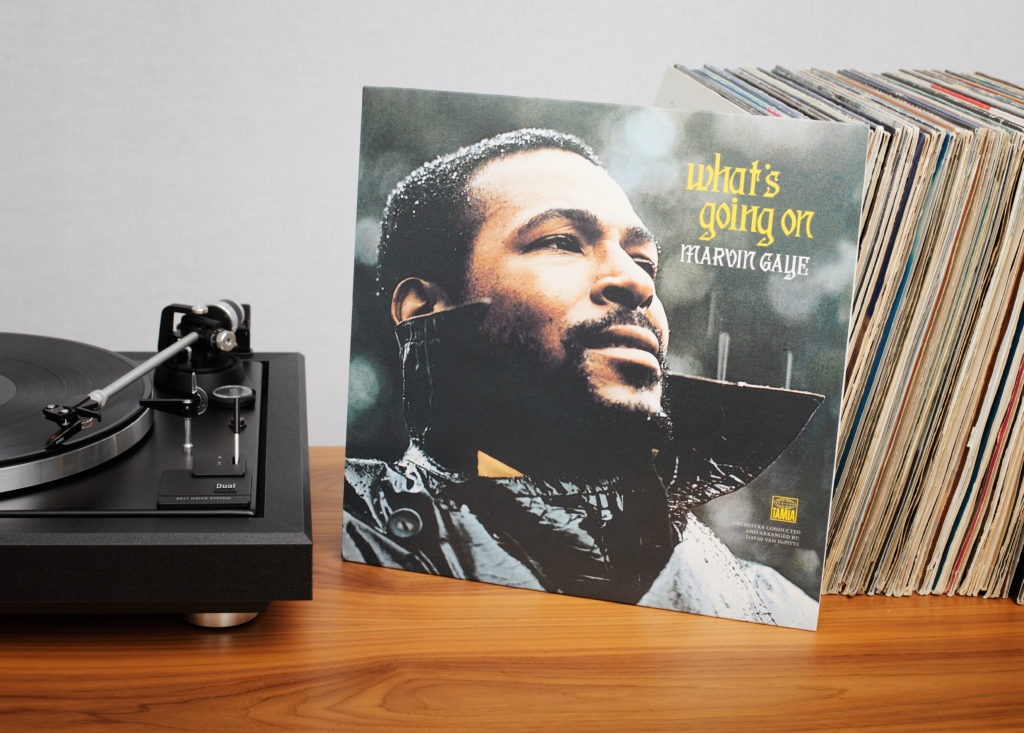
Among other things, 2021 seems to be the year of the Golden Anniversary.
Every time you turn around, something or someone iconic is turning 50.
In my world, recent celebrations have included WRIF and NPR. And then there’s Disney World, Amtrak, and yes, the invention of the frozen margarita. They’ve all turned the Big 5-0.
But one that caught me by surprise last week was the 50th anniversary of one of the most important songs in music history – Marvin Gaye’s “What’s Going On,” originally released in January of 1971.
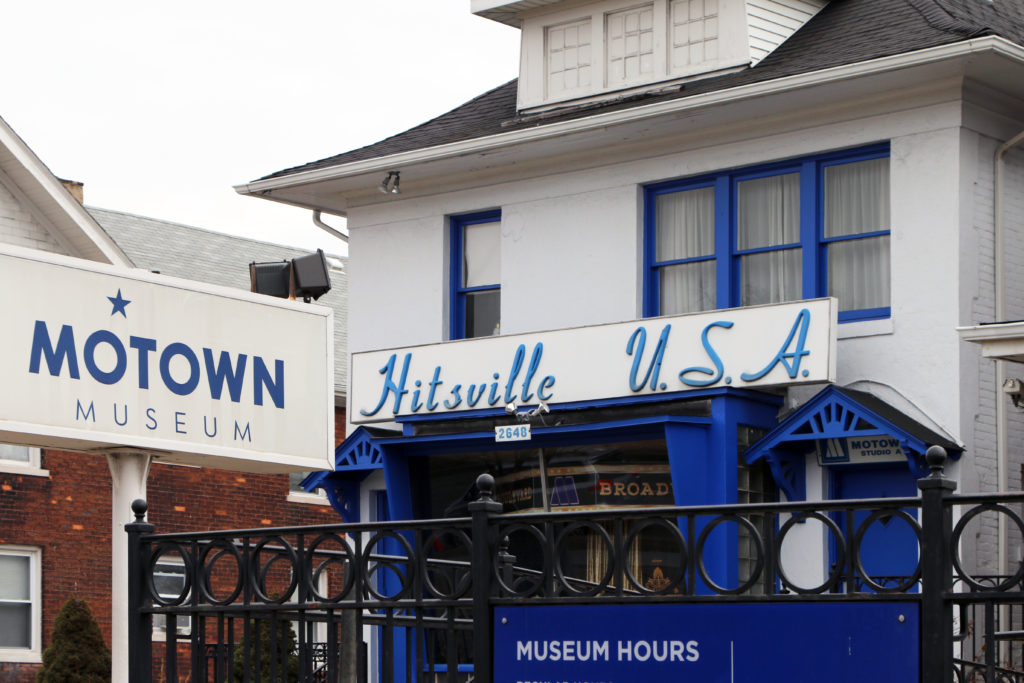 Last week, Detroit’s Motown Museum was the centerpiece of the celebration of an amazing song that walked the fine line between protest and spirituality. It was an important musical statement about what was going on in America during that time.
Last week, Detroit’s Motown Museum was the centerpiece of the celebration of an amazing song that walked the fine line between protest and spirituality. It was an important musical statement about what was going on in America during that time.
And the fact it not only endures today, but retains its relevance, both musically and lyrically is an amazing tribute to Gaye. Brian McCollum, the Detroit Free Press music columnist, wrote a wonderful story about the Motown superstar, the amazing song itself, and how it still resonates in 2021. I recommend you read it.
Perhaps part of the issue is that we haven’t come that far in so many ways since then. Social justice, the state of our cities, the environment, and national and international instability were all topics addressed in a song that has always struck me not just as a statement of our times, but a question about who we are.
The fact “What’s Going On” eerily fits in with the mosaic of our chaotic lives today is a proof positive of Gaye’s ability to transform himself from one of Motown’s best soul artists to a self-aware musician who had important stories to tell. And in 1971, he had the stones to tell them.
Like Steve Wonder’s Innervisions album and the Temptations’ “Ball of Confusion,” Gaye’s anthem about those uncertain times elicited great doubt from his boss, Barry Gordy, Motown’s powerful founder and chief, who worried his artist was drifting away from his pop/soul core.
And it brings to mind the missed opportunities of the past year – or maybe past five years – when an equally anxious America was shaken to its core by social injustice, environmental crises, and of course, the pandemic, and all the disruption these events sowed.
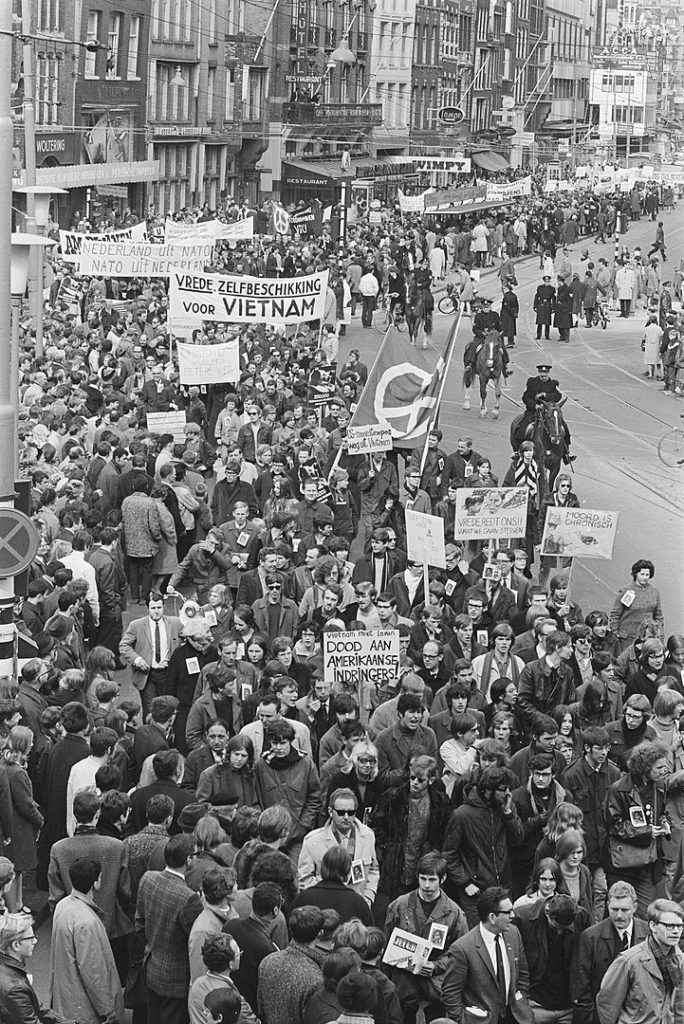
The fact that President Nixon was fighting a war in Vietnam while a half century later, President Trump was battling his own demons in the war against the coronavirus provide yet another analogy that inexorably binds then and now together, even though they’re five decades apart.
And that calls into question something I’ve wondered about for several years, but especially during 2020, the “Year of COVID,” along with the Black Lives Matter movement and a presidential election like no other.
Books, movies, TV mini-series, documentaries, and other cultural manifestations will soon be written and produced that address what was going on in America last year. It takes time and perspective to conceive them, create them, and release them.
But music can be made in the moment. And while it took Marvin Gaye months to visualize, write, and record “What’s Going On,” it is hard to imagine why an important artist of today – from any genre – hasn’t taken a chance on making a musical statement about the here and now. There certainly is a lot to sing about.
Tomorrow marks the one-year anniversary of George Floyd’s death, an important bookmark of 2020, a year none of us will ever forget. But none of it was memorialized in a song that captured the focus of millions of Americans.
A fascinating aspect of Gaye’s masterwork is that rather than pointing fingers or expressing anger, his song is more of an insightful statement of the times, sung by a weary, worried musical observer commenting on the state of his city – and his world.
Yes, music is often an escape. While Gaye was busy producing “What’s Going On,” Lobo gave us “Me And You And A Dog Named Boo,” Donny Osmond hit the charts with “Go Away Little Girl,” and one-hit wonder Jean Knight had a hit with “Mr. Big Stuff.” The pop charts could be as irrelevant and vapid then as they are today.
While the music of that era fueled the big Top 40 stations from KHJ to WABC to CKLW, FM rock stations were playing a different soundtrack: The Who’s “Won’t Get Fooled Again,” Ten Years After’s “I’d Love to Change the World,” and Cat Stevens’ “Peace Train” also hit the radio airwaves in ’71, making their marks.
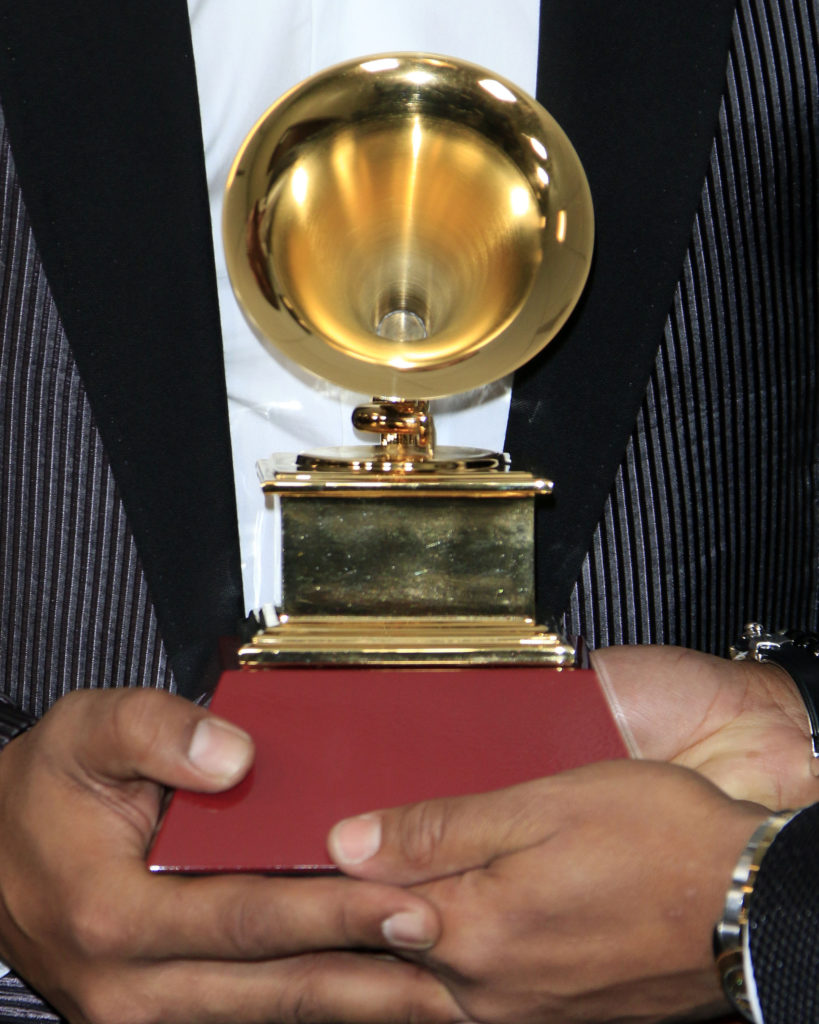 Put your streaming stats away, as well as the profit and loss statements the big labels enjoyed last year. It was another banal year of music, with few exceptions. The Grammys can blame its all-time horrific ratings once again this year on the pandemic or on the fact that every awards show is struggling to attract viewers. A record low 8.8 million viewers bothered to watch America’s historic music awards show, down from 2020’s then record low 18.7 million viewers. The show – and the music industry itself – is failing to resonate with today’s consumers.
Put your streaming stats away, as well as the profit and loss statements the big labels enjoyed last year. It was another banal year of music, with few exceptions. The Grammys can blame its all-time horrific ratings once again this year on the pandemic or on the fact that every awards show is struggling to attract viewers. A record low 8.8 million viewers bothered to watch America’s historic music awards show, down from 2020’s then record low 18.7 million viewers. The show – and the music industry itself – is failing to resonate with today’s consumers.
It also has to be a statement about the reticence of many big artists, afraid to step away from their carefully crafted images and calculated brand strategies to send a different message to fans looking for answers in the music over the air or in their earbuds.
That’s what Marvin Gaye did in 1971 with “What’s Going On.”
Rather than crippling his career, he redefined it. The song (which hit #2 on the Billboard charts) broke Gaye out of the Motown stable and into a class by himself. And it inspired an entire generation looking for an anthem of their times.
Tomorrow marks the one year anniversary of George Floyd’s death. That no song or contemporary artist has emerged in the same fashion in 2020 as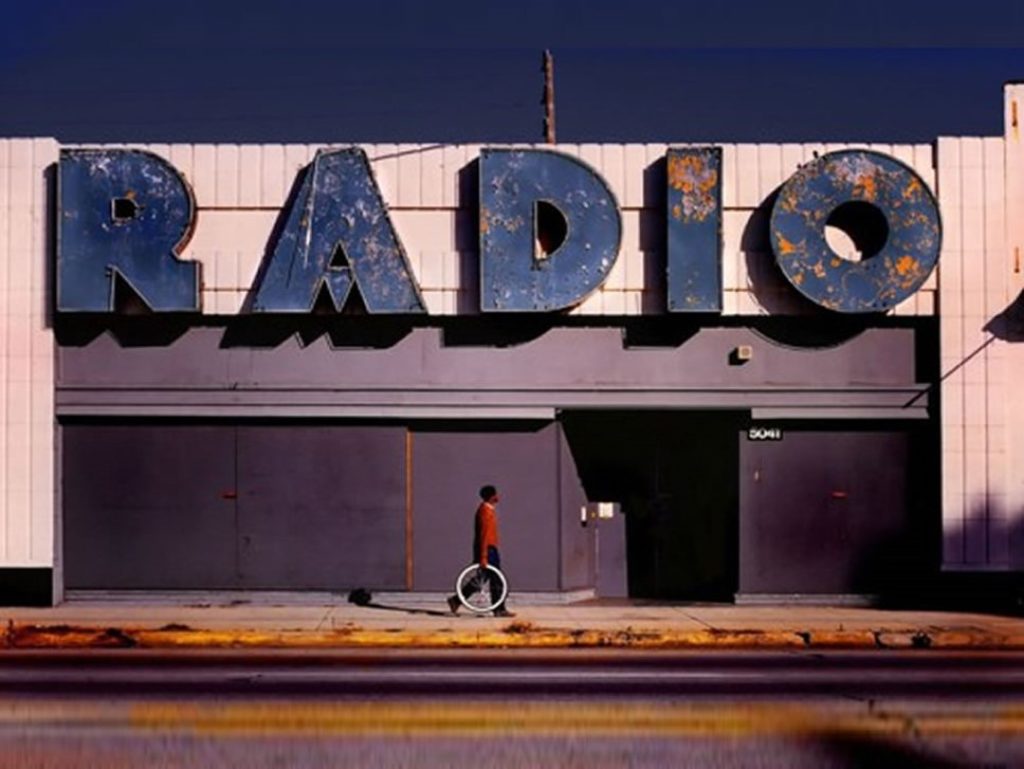 a marker of these times may be attributable to a very different music and audio environment today, dominated by playlists and podcasts, rather than by radio airplay where we once communally experienced the same music played at the same time.
a marker of these times may be attributable to a very different music and audio environment today, dominated by playlists and podcasts, rather than by radio airplay where we once communally experienced the same music played at the same time.
But it may also be the result of playing it safe, not wanting to offend any segment of an increasingly volatile and contentious public, willing at the drop of a song to take to social media to express their umbrage and outrage.
Oddly enough, the so-called “culture wars” that infect our society and our discourse were alive and well 50 years ago. America was divided then, as it is now, and the volume and anger were just as loud and just as palpable.
I am sure I will hear from some on this post, telling me about songs that came out last year with important messages and metaphors. And I don’t doubt for a moment they exist.
But the fact these musical reflections of our times failed to break through and become part of the soundtrack of 2020 is a statement in and of itself. That’s part of what makes Marvin Gaye’s feat of 1971 even more significant. For whatever the reason, it apparently can’t be done today.
What’s going on?
- What Is It With Female Robot DJs? - April 30, 2025
- Why “Dance With Those Who Brung You” Should Be Radio’s Operating Philosophy In 2025 - April 29, 2025
- The Exponential Value of Nurturing Radio Superfans - April 28, 2025




Great one…One of your best posts ever.
Thank you, Kurt. Appreciate it.
Powerful post today, Fred.
It takes a brave artist, today, to rock the boat, and tell it like it is.
I can’t really think of many artists who WOULD.
Perhaps Bruce, Kanye, Or maybe Taylor.
Bruce has been vocal on lots of political issues, which inspire his fan base, but irritate the others. You’ve gotta be able to not CARE of the negative reaction, because these days, trolls are everywhere!
I’m with you, Fred.
We need more songs telling our story.
Don’t know if you’ve heard it, but a recent one comes to mind by one of my heroes, Paul McCartney, titled “Despite repeated Warning, from Egypt Station.” Sadly, It’s gone almost unnoticed, and is a major cry out to the world. Worth a listen to this 6+ minute epic.
JC, I thought about including this in the post, but opted not to.
But now, you’ve opened the door.
I’m not sure it’s possible for a 60 or 70something white guy – even if it’s Bruce and Sir Paul – to deliver the message. Each carried that weight earlier in their careers. Now it’s time for younger musical messengers to step up. If a young black woman like Amanda Gorman can emerge on the scene and become Poet Laureate for the U.S., it is possible for the same thing to happen on the musical stage. It took just one poem at one appearance (at Biden’s inauguration) for her to make her powerful presence known. Why couldn’t it happen in music?
Great point. Yup, we DO need them youngsters to speak up too!
And I too was blown away br Amanda…yes, more like her in music, please!
The right talent, at the right moment, on the right stage.
Great post Fred. Yes, 2020 was an awakening in many ways. The WHAT’S GOING ON CNN doc was great, I wanted more. And 2020 helped me clear my head and just shameless plug for the new book Mashed Potatoes: Cancer, Covid & Comfort Food. https://www.amazon.com/Mashed-Potatoes-Cancer-Covid-Comfort/dp/B095GL6TM9/ref=tmm_pap_swatch_0?_encoding=UTF8&qid=1621865764&sr=8-5
I start out with hearing the announcement of JFK being shot, and travel through the last year. I was a diary of sorts that got out of hand, but the message is simple, it’s time to figure out why things don’t change fast enough and start changing them. If radio is a metaphor for America, then there is the lesson. What is your purpose? Can you be true to your value, without being sucked into the corporate lust. Okay, Mother, mother
Everybody thinks we’re wrong
Oh, but who are they to judge us
Simply ’cause our hair is long
Oh, you know we’ve got to find a way
To bring some understanding here today
Sounds like that book is primed for this moment, Dwight. It’s nice you’re more productive as an author than you were as a consultant. (ba-dum-bum?) Seriously, congrats on your 6th book (correct?), belated happy birthday, hope you’re feeling good & best to Roxy.
“I’m not sure it’s possible for a 60 or 70-something white guy – even if it’s Bruce and Sir Paul – to deliver the message. Each carried that weight earlier in their careers. Now it’s time for younger musical messengers to step up.”
Fred, I’ve been wondering the same thing since the beginning of the global pandemic, hatred-fueled riots (and insurrection) and political social unrest. At a time when artists have unfettered direct access to their fans, what’s stopping them?
Jack, it has to be fear of creating a backlash. After all, even if people were pissed off at CSNY over “Ohio,” what could they do about it, other than turn off the radio when it came on? Today, it takes nothing to unleash the ire of legions of social media users who are always ready to call them out. That has to have something to do with it.
Loved the article. Totally related to it. Then I thought, in 1971 we were all in our teens or 20s consuming everything the limited platforms of the day offered up- AM, FM, network TV, Newsweek, Crawdaddy… and maybe what our older brother was saying. Now in our 50s and 60s, are we in a position to say nothing cut through this year… and, really does anything achieve critical mass anymore with so, so many platforms? Maybe ask someone in their teens and 20s if, for them, there was a song that provided a “what’s Going On” connection?
There’s no doubt, Bill, it’s a generational thing. Which is why try as he might, a relic like Springsteen can’t pull this off when he’s on the “Back 9.” I realize teens don’t read this blog, so if there’s one nearby, ask her whether there’s a musical artist that has delivered a social message that most of her peers has heard. And get back to me on that. Thanks much for the comment.
good stuff, Fred. i think timid corporate radio programming plus the diversity of platforms and direct-to-listener distribution (which Bill Weston mentions) makes it almost impossible for one song to reach a critical audience mass and be perceived as “the song.” radio – in general – will be the last place a song clearly critical of guns, government, politicians, racism or social inequality would be given meaningful support. i think artists are addressing our world as they see it. it’s just nearly impossible to get the world outside your social bubble to hear it if you’re expecting major platforms to assist.
I think you’re absolutely right, Dave. As the comments have rolled in today, it’s clear limitations in today’s radio are probably at work here. The fear factor about adding a controversial song is undoubtedly a factor. But it’s fascinating that the more sources on which artists and songs can be exposed, the greater fragmentation that exists. That seems almost counter=intuitive but the less homogenous the distribution, the harder it is to build up the necessary “reach and frequency” to create hits. Appreciate the comment.